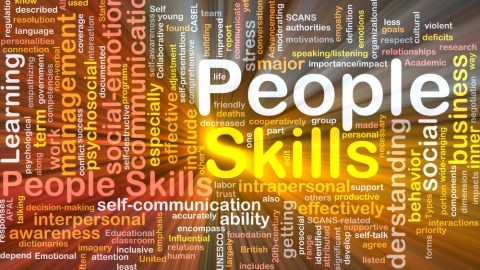Surely There’s a Better Way to Say That!

All day long people everywhere say the wrong thing, or they say the right thing, but in the wrong way. Hazard pay should be offered to people whose jobs require frequent interpersonal contact, because there’s nothing safe about it. No two people think alike, and yet most of us communicate each day — contrary to extensive evidence — as if others should understand us regardless of how well or poorly we express ourselves.
“If only they’d listen,” we reason or, “If only there were fewer idiots where I work, my ideas would get through.” And, indeed, sometimes those are the obstacles that prevent effective discussions. But, more often than not, the problem lies in the erroneous assumption so many of us harbor — that we’re making ourselves perfectly clear, and therefore anyone with half a brain should “get” what we’re saying.
But we need to remember that slippage occurs between what we think and how we translate it to the spoken word. When you think about it, the human capacity to so quickly speak what we’re thinking is an anatomical miracle. And yet it’s also a potential detriment to getting our ideas across so they’re accurately understood. In such cases, speed sacrifices accuracy.
Perhaps if we’d been built in such a way that pauses were required between thinking and speaking, this problem wouldn’t occur nearly as often. Thought pauses, however, are rare. Why? Mainly because they give others an opportunity to interrupt and they can imply limited knowledge, slowness of thought, lack of leadership, or even deception. So we babble on, neglecting to learn ways to reflect before and while we speak.
The most accomplished communicators give themselves adequate opportunity to think of the best ways to express their ideas. They consider potential denotative and connotative interpretations of what they may say. Often this comes from listening to others talk for a while before interjecting their own ideas.
The easiest way to get into trouble in especially sensitive or contentious conversations is to speak too early — to commit to a position before you understand how others see it. Yet, as a communication consultant and coach, I’ve found that knowing this does not tend to help people who feel they simply must have the first or early word in such situations.
Think of it this way. Who in their right mind would traverse dangerous terrain without learning as much about it as possible — without, for instance, studying a map and considering various routes? What exceptional basketball team blithely takes the court without having studied the competition?
Along their journeys, astute explorers recheck their maps against current conditions to determine whether their expectations were off or something significant might have changed. And yet, so many of us plow into important conversations — affecting our careers and social lives — as if our first impressions of what’s about to occur will perfectly suit all conditions along the way.
So what differentiates competent communications from the rest in this regard? Do they listen for long periods to be sure they understand all pertinent facts and opinions before speaking? Sometimes. They certainly listen longer than most people, but they also involve themselves in the conversation without committing to a position until they’ve adequately explored the ones that are available. They use such phrases as, “I was thinking that what you said makes a lot of sense. I’m wondering, however, what we’d do if ‘ x’ or ‘y’ happens.” In short, they’re inquisitive.They might tentatively commit to a position, rather than remain quiet too long, by saying, “I’m leaning toward doing what you suggest, but do you have some thoughts about how we’ll deal with ‘z’?”
Both timing and sincerity are important here. It’s not enough to memorize such comments. The idea is to observe, think, and then comment, but don’t commit early unless circumstances absolutely require it.
Think, too, of ways to avoid offending people who’ve already committed to a position. Nobody likes to look ignorant. In the majority of conversations, self-esteem is on the line. So, rather than deliver your idea like blessed rain to an arid desert, consider saying, “What I’ve heard from Al and Eileen has me thinking that we may have another option as well.”
Even people with whom we intensely disagree often provide insights that contribute to the formulation of our better ideas. Giving them credit helps avoid getting their backs up and lowers the chances of resistance. Just as important, it also gives credit where credit is due. And few things leave people feeling better about what others have to say than simple appreciation.
More on this topic here.
Photo: Keng Guan Toh/Shutterstock.com





